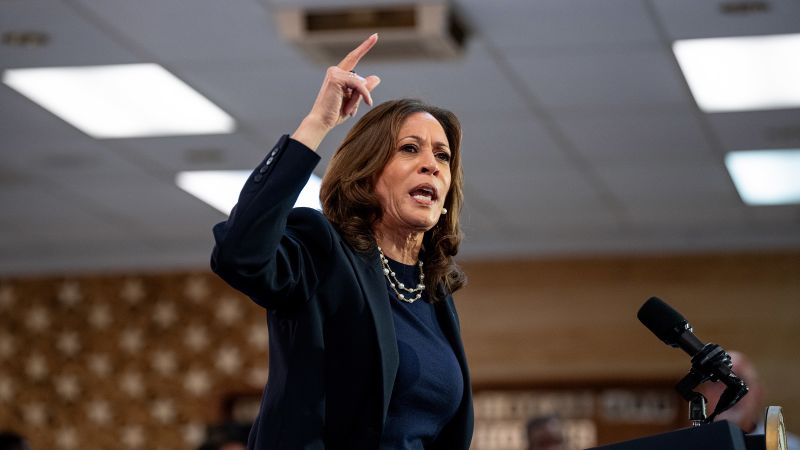Vice President Kamala Harris is set to deliver her first economic policy speech in Raleigh, North Carolina, calling for a federal ban on price gouging to decrease grocery prices and everyday costs for Americans. This proposal is part of Harris’ broader plan to address high costs and inflation by preventing corporations in the food and grocery industries from raising prices on consumers. As part of her initial 100 days in office, Harris plans to authorize the Federal Trade Commission and state attorneys general to investigate and penalize companies that violate the federal ban, provide resources to detect price-fixing, and offer support to small businesses to potentially compete with larger companies.
The economy remains a crucial issue for voters, with an NPR/PBS News/Marist poll showing Americans trust former President Donald Trump over Harris to handle the economy by a slim margin. Harris has endorsed the elimination of taxes on tips for hospitality and service workers, a policy proposed by Trump. In her upcoming speech, Harris will differentiate between her economic agenda and Trump’s, arguing that Trump’s plan would lead to increased inflation and costs for middle-class families, potentially imposing hidden tariffs on everyday household items. Ahead of Trump’s economic speech in Asheville, North Carolina, the Harris campaign criticized his lack of a comprehensive plan and vision for helping the middle class, accusing him of benefiting himself and wealthy friends.
Although prices remain high for Americans, the Harris campaign highlighted the Consumer Price Index report for July, which showed a slower-than-expected increase in inflation, landing below 3% for the first time in over three years. The campaign believes this indicates a strong economy and lower inflation rates compared to previous years. Harris campaign spokesperson Joseph Costello stated that Trump’s agenda would move the economy backward by giving tax incentives to corporations engaging in price gouging, potentially raising prices on the middle class by $2,500 and causing a recession. Harris plans to emphasize her dedication to fighting for the middle class and lowering costs as a top priority from day one.
Harris’ speech will focus on contrasting her economic policies with Trump’s, highlighting the potential negative impacts of Trump’s economic agenda on middle-class families. The campaign criticized Trump’s record during his presidency, accusing him of costing millions of jobs, bringing the country close to a recession, and providing significant financial benefits to billionaires and large corporations. Harris plans to emphasize her commitment to fighting for the middle class and ensuring cost reductions as a critical aspect of her platform. She is expected to advocate for measures to prevent price gouging by corporations and provide support for small businesses to create a more competitive market environment.
As part of her efforts to address high costs and inflation, Harris plans to implement a federal ban on price gouging in the food and grocery industries. This proposal is aimed at reducing grocery prices and everyday costs for Americans by preventing corporations from hiking prices on consumers. In addition to the ban, Harris will authorize the Federal Trade Commission and state attorneys general to investigate and penalize companies that violate the ban, provide resources for detecting price-fixing, and offer support for small businesses to compete with larger companies. The upcoming speech in Raleigh, North Carolina, is expected to outline Harris’ economic plan and highlight her commitment to fighting for the middle class and lowering costs as a top priority.


